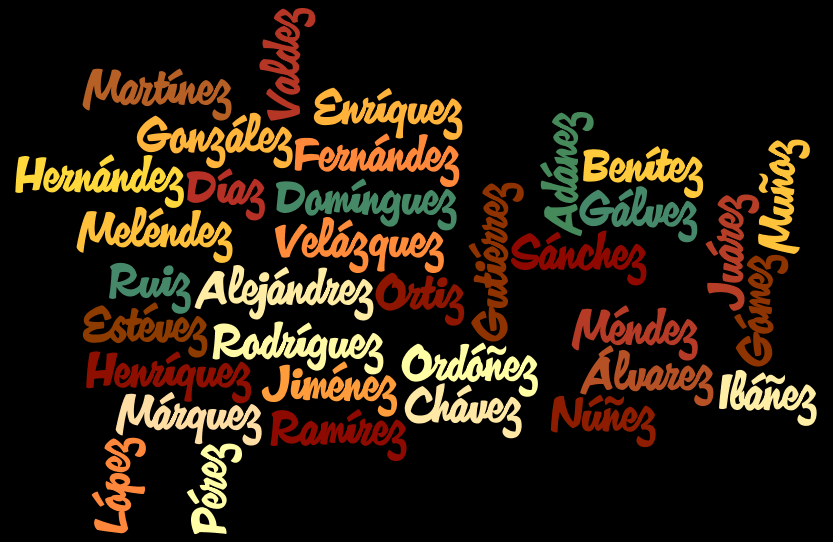In today’s New York Times, Pamela Paul describes the challenges that she faces because, like many women in the United States, she uses her maiden name in professional contexts and her married name otherwise. These include practical issues, like whether her husband can use her Costco card; emotional challenges, like her children’s “permanent state of confusion”; and even legal issues. Ms. Paul was once detained at an airport for 40 minutes because her ticket and her ID had different names.
Since I’m always wearing my “Spanish glasses”, so to speak, I was immediately struck by how unnecessary these issues must seem to folks who follow the Hispanic naming system. Married women keep the same two last names they’ve had since birth: one apellido from their father and one from their mother. They can optionally add de X to show that they’re married to a Sr. X. This seems somewhat sexist, implying that a wife is her husband’s property, but at least it’s simple and consistent.
A celebrity example may be in order. The adorable Suri Cruise’s full name, Hispanic-style, would be Suri Cruise Holmes, after her father (Tom Cruise) and mother (Katie Holmes). If she were to marry, say, Knox Pitt Jolie (the son of Brad Pitt and Angelina Jolie), she could optionally go by the longer name Suri Cruise Holmes de Pitt. Suri and Knox’s children would all have the last names Pitt Cruise.
 I don’t have a dog in this hunt, personally. I kept my maiden name and haven’t had many problems with it. In fact, it’s a useful way to weed out sales calls, since the caller will often ask for me by my husband’s name or the reverse. But I do sometimes wish that the United States followed the Hispanic system so that there would be no ambiguity.
I don’t have a dog in this hunt, personally. I kept my maiden name and haven’t had many problems with it. In fact, it’s a useful way to weed out sales calls, since the caller will often ask for me by my husband’s name or the reverse. But I do sometimes wish that the United States followed the Hispanic system so that there would be no ambiguity.
I’d love to hear from some readers from Spanish-speaking countries about their personal experiences with apellidos. How often do women use the de X convention? Is there any confusion with school registrations or other formalities involving children? Are you happy to be following the Hispanic system?
